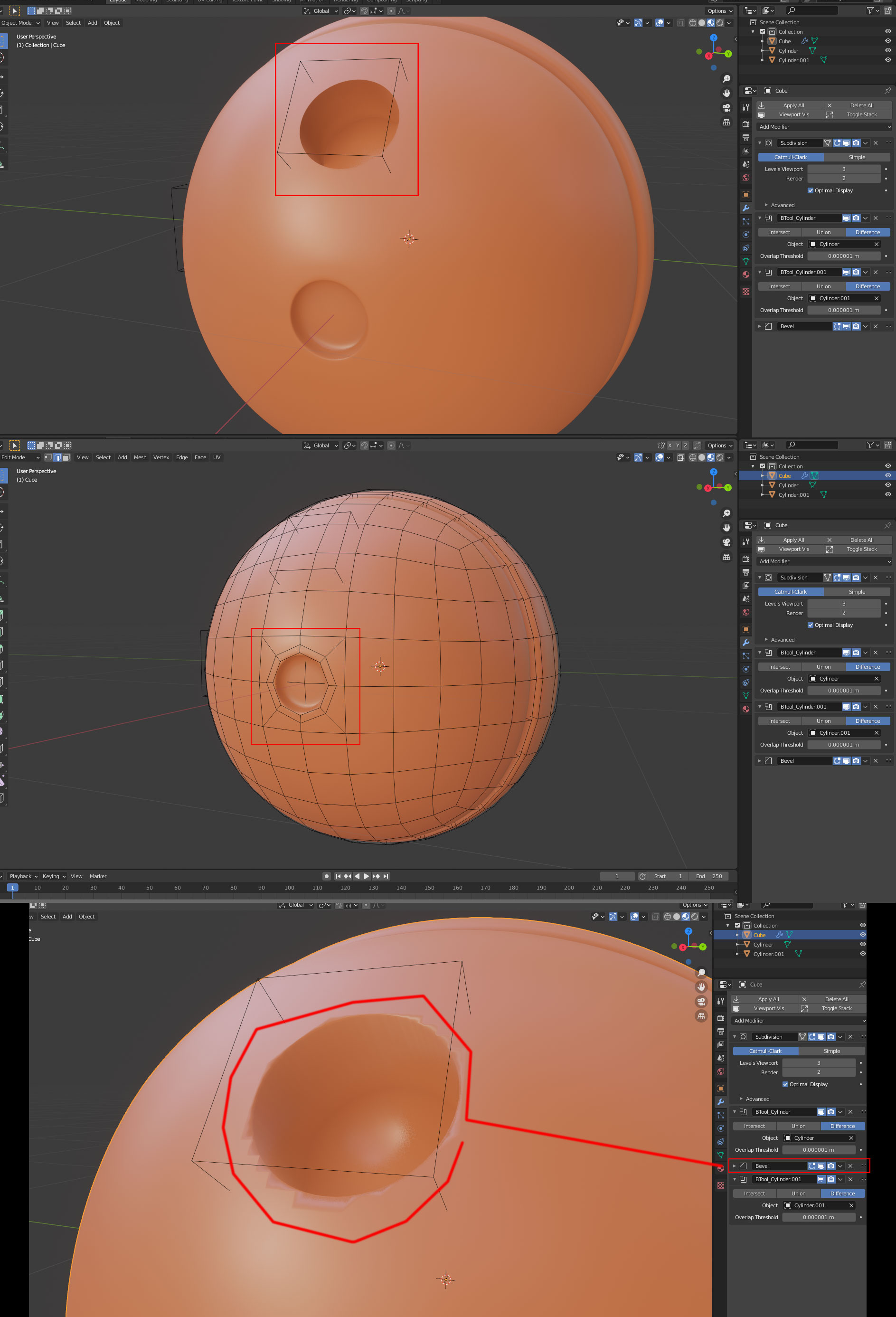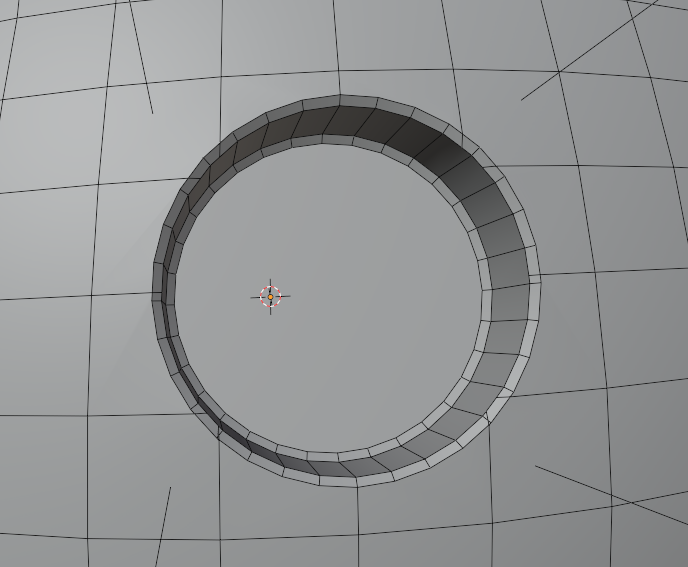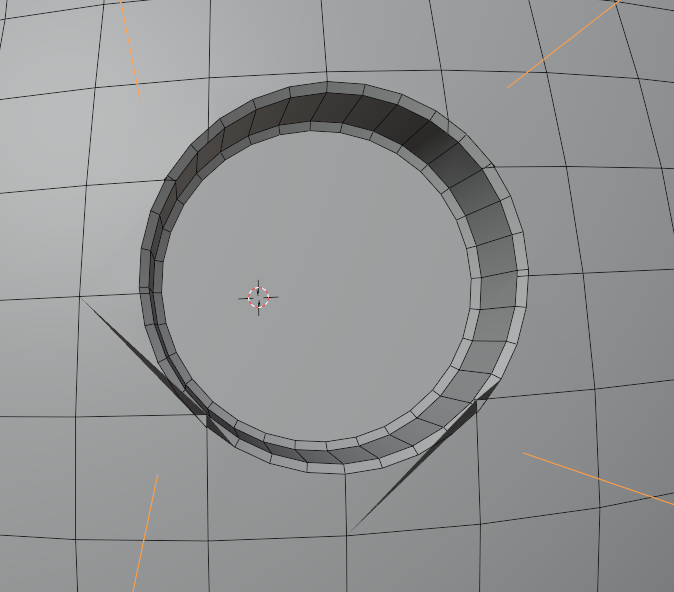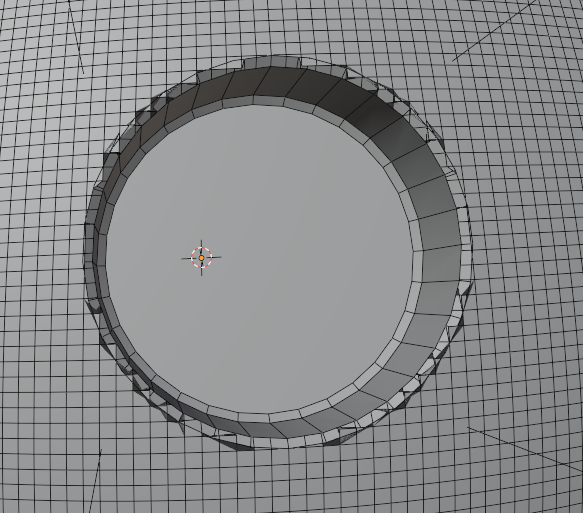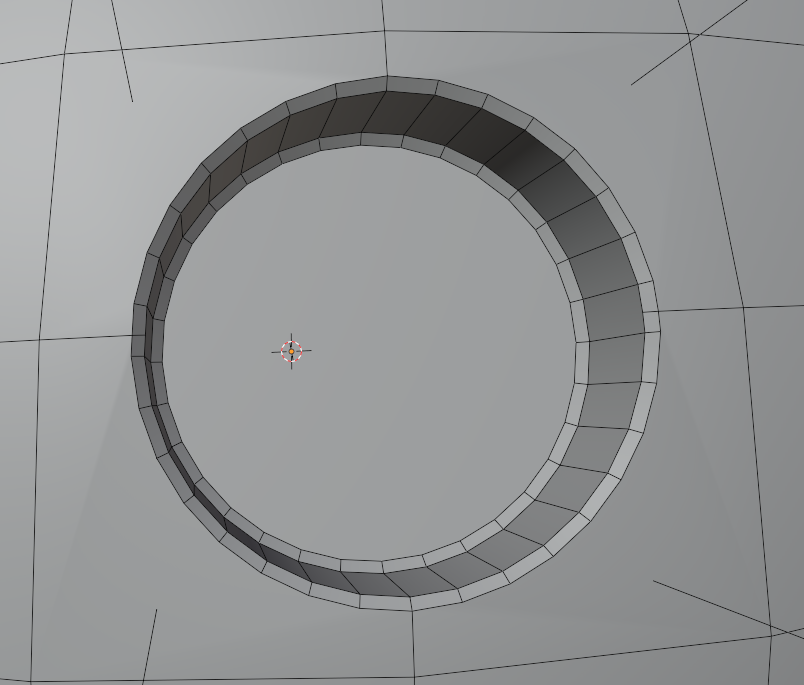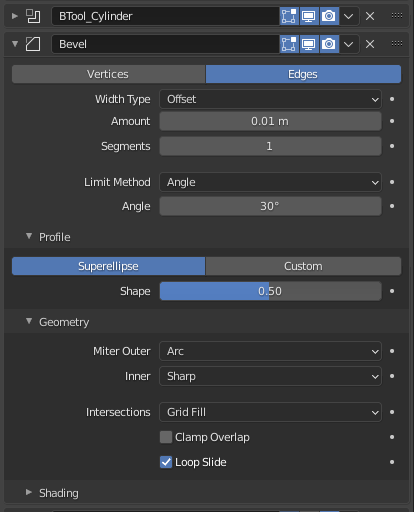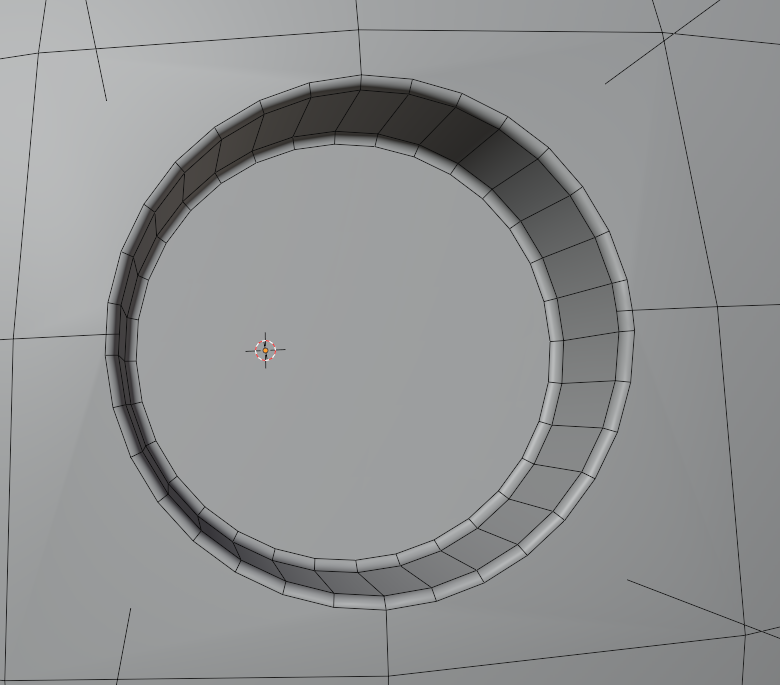I have a mesh which has the subsurface modifier applied to it. And I have made an indentation of a hole within the mesh, and the edges are catching the reflections. I also did a smart Boolean operation, but the edges are too sharp and look fake. I rearranged the modifier stack and put the Bevel above the Boolean operation, but its making it look incorrect. is there a way I can use the Smart Booleans to get reflections on the edges? I also tried the decimate modifier in case it cleans it up, also the weighted normal modifier in case it could help, but it only became worse.
-
$\begingroup$ I think you will find this tutorial very useful: youtube.com/watch?v=NZXYWzv02m4 Any chance of sending us this file? I would like to test my hard surface modeling knowledge on it. I learned few tricks recently. $\endgroup$– Filip FranikCommented Feb 4, 2021 at 8:41
-
$\begingroup$ Its a good tutorial and has good information about topology, but imagine having to make 5 holes here, 10 over there, etc etc, and having to clean up your vertices each time, so I'm looking for a better method if there is one. $\endgroup$– blender breathCommented Feb 4, 2021 at 10:49
-
$\begingroup$ check this out, i think it's way easier youtube.com/watch?v=EeGXh59m1s4 $\endgroup$– ChrisCommented Feb 4, 2021 at 11:24
-
$\begingroup$ Hi Chris, that's how I got the hole in my example which is shown beneath the Smart Boolean operation, hence it gets smoothed edges. Thanks for the video recommendation though. $\endgroup$– blender breathCommented Feb 4, 2021 at 11:31
-
$\begingroup$ so your problem is just, that the edges are too sharp? $\endgroup$– ChrisCommented Feb 4, 2021 at 11:48
1 Answer
Usually hard surface modeling workflow avoids to make holes in a sphere exactly due to those problems. Also you should never add subdivision before a bevel. Bevel only works well when the vertices of the sphere are not caught inside the bevel.
When they get to close you see artifacts.
The denser the topology the harder it is to keep vertices away.
That's why I suggest not to use subdivision surface.
As a pro tip you can also keep bevel segments low when you use weighted normals modifier after the bevel.
This is single segment bevel without weighted normals.
The setup I usually use:
And this is after weighted normals modifier was added.
Looks just like a bevel with many segments, but it has much smaller chance of generating artifacts.
Only other solution is to apply the modifiers and perform manual cleanup. Several commercial add-ons (I think it was BoxCutter or HardOps) ships with a script to clear the topology to fix exactly this problem.

